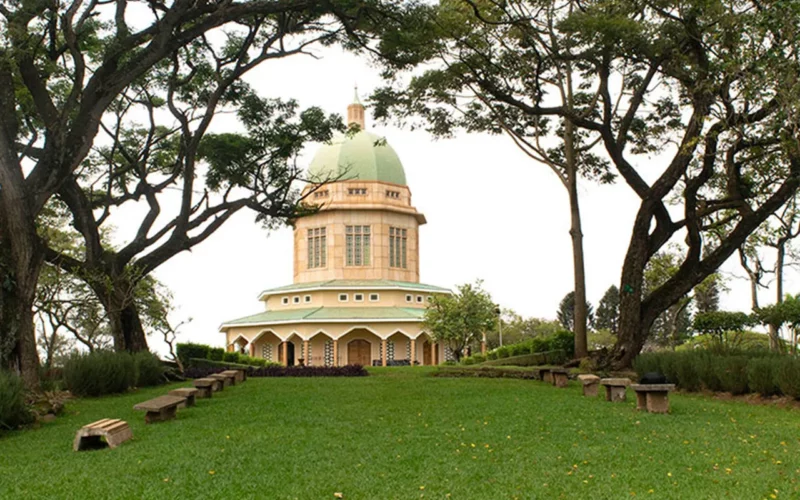Kampala City, also known as “the city that never sleeps” is Uganda’s commercial and an administrative capital lying along the northern shores of Lake Victoria, 40 km from Entebbe International Airport. Originally set on 7 historical hills, Kampala today spreads over 200 square kilometres area, and is one of the fastest growing metropolis on the continent with over 1.9m residents.
History of Kampala
Kampala is a seat of an ancient and thriving Buganda Kingdom, the largest and most powerful great lakes kingdoms whose territory once covered the majority of central Uganda and extending into the now Northern Tanzania. The kingdom was very much instrumental into the formation and shaping of modern Uganda.
Kampala’s capital status begun as a humble colonial post 100yrs ago, when the British colonialists elected their colonial flag atop the newly constructed fort on Old Kampala hill declaring Uganda as a protectorate. The British named the new established colonial office, Kampala, a short form of the “Akasozi k’empala”, a name the local Baganda people called these hills that translates as “a hill of Impala”, an elegant antelope that dominated these hillsides.
Kampala City Tour Overview
Our Kampala City tours are tailored to connect you to the local lifestyle, and give you a well rounded overview of Kampala’s character and vibe. Our local city guides will offer you local insights, as you visit various attractions and landmarks to learn of the historical heritage. Explore the day-to-day hustle and bustle lifestyle as you walk on Kampala’s famous Kikuubo lane also known as Kampala Wall-street to witness massive trade and exchange in downtown.
Finally on tour explore, we explore Kampala’s eating places for a chance to sample local cuisines and time allowing, explore excellent nightlife and rub shoulders with residents as they wind up their evenings.
Here are some of the attractions and highlights on tour;
7 Attractions and Things to do on a Kampala City Tour
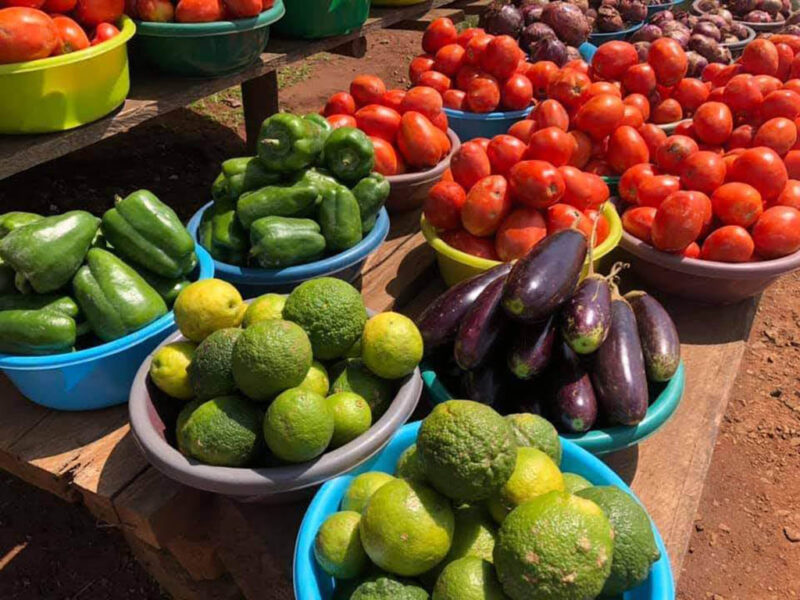
-
Visit Kampala’s colourful fruit Markets
A major highlight on all our Kampala city tours, is a visit to city’s colourful food markets to witness a variety of Uganda’s produce from all across its rich and fertile soils. Our favorite is the the 100 yr-old Nakasero food market set in the heart of Kampala’s busy business district that stocks fresh vegetables, fruits and other merchandise. The tour then continues onto Kampala’s streets lined with various shops and supermarkets, a beehive of trade and exchange, a testament of Uganda’s enterprising spirit. On tour through this business district, try your negotiating skills will youthful traders, share smiles and purchase yourself a souvenir or fresh fruit.
-
Visit the Kabaka’s (King’s)Palace at Mengo
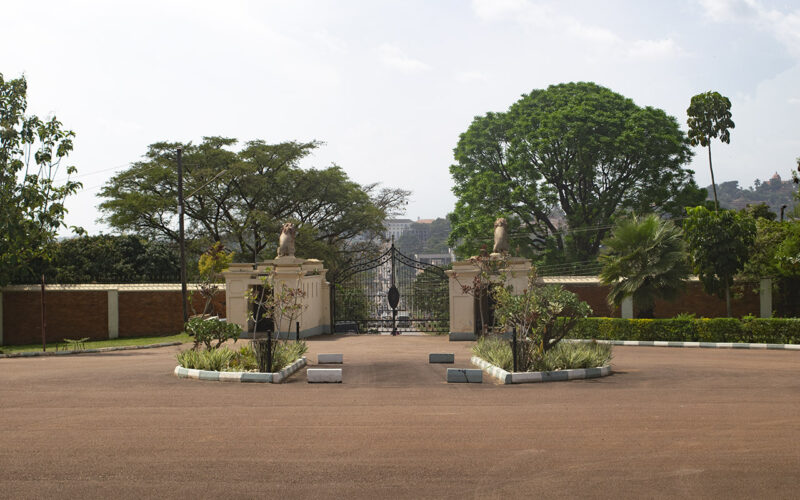
Another highlight on our Kampala city tour is a visit to Buganda Kingdom’s Kings palace, the official King’s royal residence and the seat of Buganda Kingdom, and currently led by the 36th Kabaka (king), His Majesty Ronald Mutebi 2. The palace building is a beautiful architectural masterpiece set atop the Bulange Hill, one of the ancient 7 Hills that make up Kampala City.
A tour here sheds light on the kingdom’s highly organized political structure, its past, business and power brokering maneuvers that not only spared it but strengthened and prospered it to become a powerful ally during and after colonial storms that shook this equatorial region and its contribution to the birth of the current state of Uganda. The tour includes a short walk along the Royal Mile that connects the King’s Palace and his Parliament lined up totems representing clans that make up this powerful kingdom.
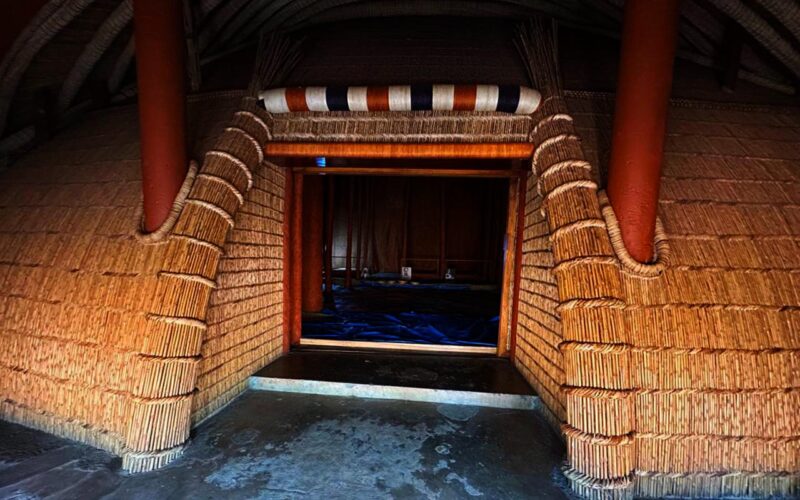
-
Visit Kasubi Royal Tombs
Kasubi Tombs are a UNESCO heritage site and a final lying place for the Kings of Buganda. The tombs lie within a dome structure of reed and grass which have excellently restored after a tragic fire in 2010, and houses the remains of 4 kings. Kasubi Tombs is a living museum itself where active personnel carry on royal traditions in service to the Kingdom. On tour, kowlegdebale site guides will explore the entire kingdom history, explain intricate traditions, norms and point out significant landmarks which are the main pillars of Buganda and its clans.
-
Visit the Gaddafi Mosque or Uganda National Mosque
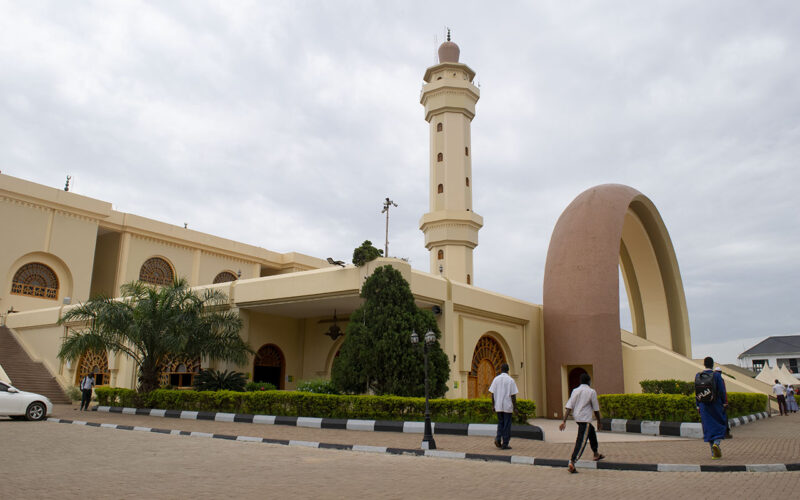
The Uganda National Mosque formerly the Gaddafi Uganda is the biggest mosque in East Africa and an architecture masterpiece atop Old Kampala Hill where it commands a 360 degrees over Kampala and its original 7 Hills. The mosque was largely funded by the falled Libyan leader Col Muammar Gaddafi and can accommodate over 20,000 worshippers excluding the overflow. While on a tour here, take the famous 272 steps in a minaret to have all-round views across the city.
-
Visit the Bahai Temple
The Bahai House of Worship is Kampala’s top landmark set in a 52 acre manicured gardens atop Kikaya Hill some 7km on western edges on Kampala city. Opened in 1962, the Bahai Temple is the largest in Africa referred to as the Mother Temple and boasts an outstanding architecture design. The temple welcomes people from all walks of faiths but main services occur on Sundays. Visit this landmark and enjoy the serenity of gardens and views across the City.
-
Take a Boda Boda or Matatu on a Kampala City Tour
Other cities have yellow-cabs, tube, metro, trams and so forth, but Kampala has taxis and Boda-boda.
Surprising to a first-time visitor, Kampala’s taxis are the blue-side striped mini-vans that pry and connect local suburbs to its city center. The city’s narrow and congested roads are notorious for their heavy (but short) traffic jams especially in the peak hours. Without a major bus or train services to connect to its suburbs, these smaller private operated mini-bus taxis (matatu taxis) with a capacity of 14 passengers serve the local commuters that trade and work in this bustling city.
The smaller two wheeled Boda bodas are quicker beating and negotiating crammed roads but be sure to put on a safety helmet, as these riders tend to be reckless. The safer well-organized riders, operate via a phone app and can be reached to pick/drop you at a desired destination.
Bigger buses set out daily for longer routes to upcountry towns and even as far as other regional capitals. Other service providers include Uber and local taxis locally called “special hire” that park strategically outside major supermarkets, shops, hotels and markets.
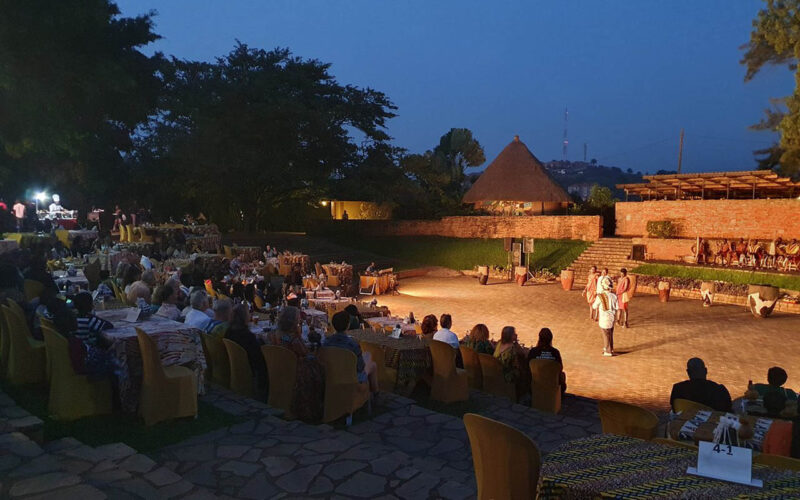
-
Visit Ndere Cultural Centre to enjoy Kampala’s nightlife
Wind up your Kampala city tour as you explore Kampala’s remarkable nightlife that has earned this bustling metropolis an unrivalled name as “the city that never sleeps” where as the sun sets off, residents across this bustling metropolis gather in their various social groups to catch and wind away the evening peacefully. One excellent venue is the renown Ndere Cultural Centre where on scheduled nights, Uganda’s unique cultural heritage is on display. Evenings here are covered by a plethora of cultural performances from Uganda’s tribes that includes folktales, warrior songs, storytelling and local cultural cuisines. Take note, that performances at Ndere cultural centre occur only on Wednesdays and Fridays at 7-10pm while Sundays shows begin from 6-9pm.
Better still, dine out in various Kampala’s fine hotels to test local cuisines or storm a local pub and rub shoulders with the hip and young Kampalans as they wind off the day.
Finally: Explore and taste Kampala’s Variety of Cuisines
Our Kampala tours end by a chance to sample a variety of traditional cuisines after all, food lies at the heart of every African culture. Our significant traditional food is known as Luwombo which is a variety of carefully prepared dishes that originate from the Buganda tradition. Luwombo dishes are served on every major occasion and dishes range from Chicken, Goat, beef, peanut source and more.
Frequently Asked Questions (FAQs)on Kampala City Tour – What you need to know when planning for Kampala City Tour
- How safe are Kampala’s streets?
Kampala’s streets are safe, however personal vigilance and safety precautions is advised. While out on this tour, keep your valuables like expensive watches, phones and cash out of the public eye, to avoid attracting attention of pick pocketers. If you have to book a taxi/ boda to transport you to a destination, use providers from your hotel, or on Apps from your mobile phone, these have a safety record. You can find Uber, Safe Boda and Bolt among others. If u find yourself running late, inform in time your host/hotel and avoid dark galleys.
- Dress Code on Kampala’s City Tour
Modesty and respectfully. Cover the sensitive parts, shorts as long as knee level and trousers are widely acceptable including on streets. On a visit to cultural and religious sites, women are required to dress respectably and descent coverings are provided on several entrances to these sites.
- Is Kampala’s Street Food safe?
Much as appetizing and adventurous Kampala street food is, we discourage visitors to just eat anywhere, apart from descent restaurants whose hygiene are up to standard. Before travelling, do take further inquiries from your GP doctor for advice on tropical food reaction.
- Is water safe for drinking?
On our tours we encourage visitors to drink only bottled-mineral water. Several brands in Kampala have a great international safety standard.
- Shopping in Kampala
Kampala city is an economic hub of Uganda and major shopping center for the region. In several upscale malls, top range international branded goods from clothing lines, phones and accessories are stocked and the prices mostly in UGX is suitable. The lively downtown business district however is flooded with variety of imported and locally made goods where one can practice his/her bargaining skill. Here new and second-hand clothes, utensils, building materials, furniture and gadgets are on sale.
Fresh food and vegetable markets are fully stocked with local produce from all the regions of the country and prices vary to one’s bargaining power.
- How to get to Kampala
Kampala lies 40 km north of Entebbe international airport

